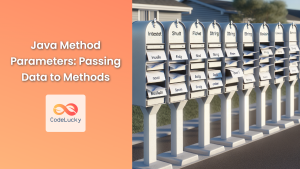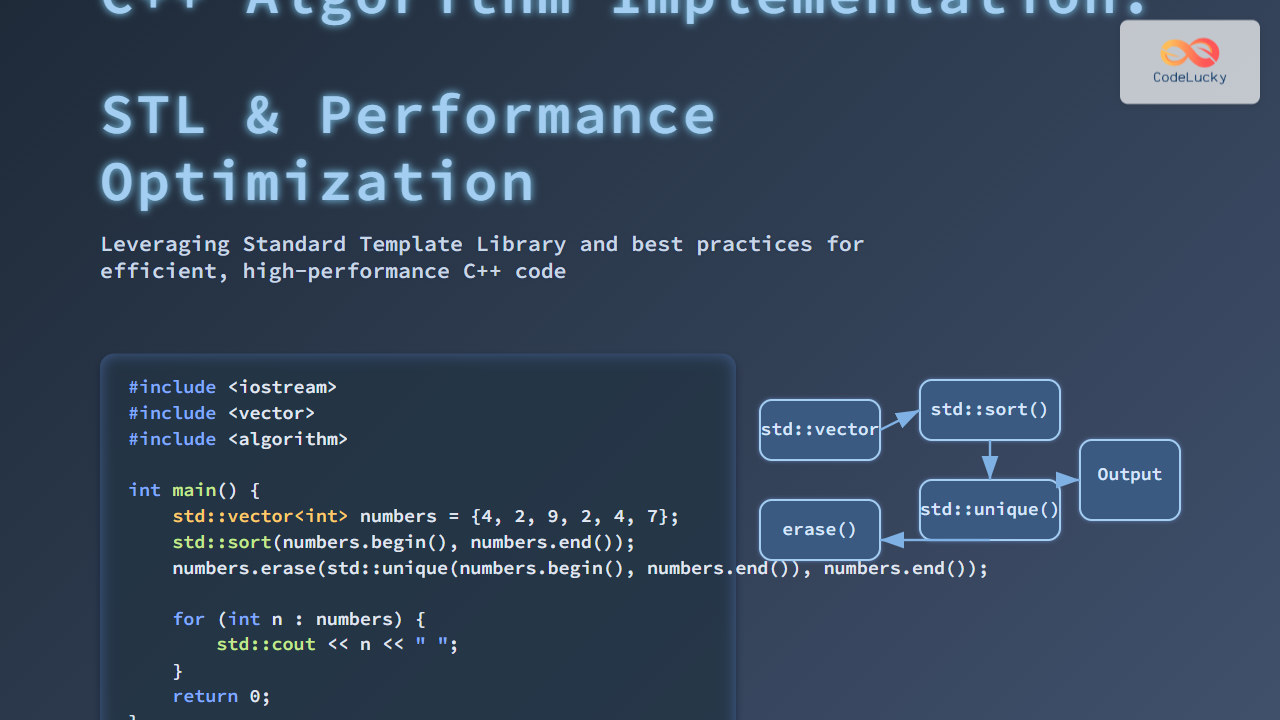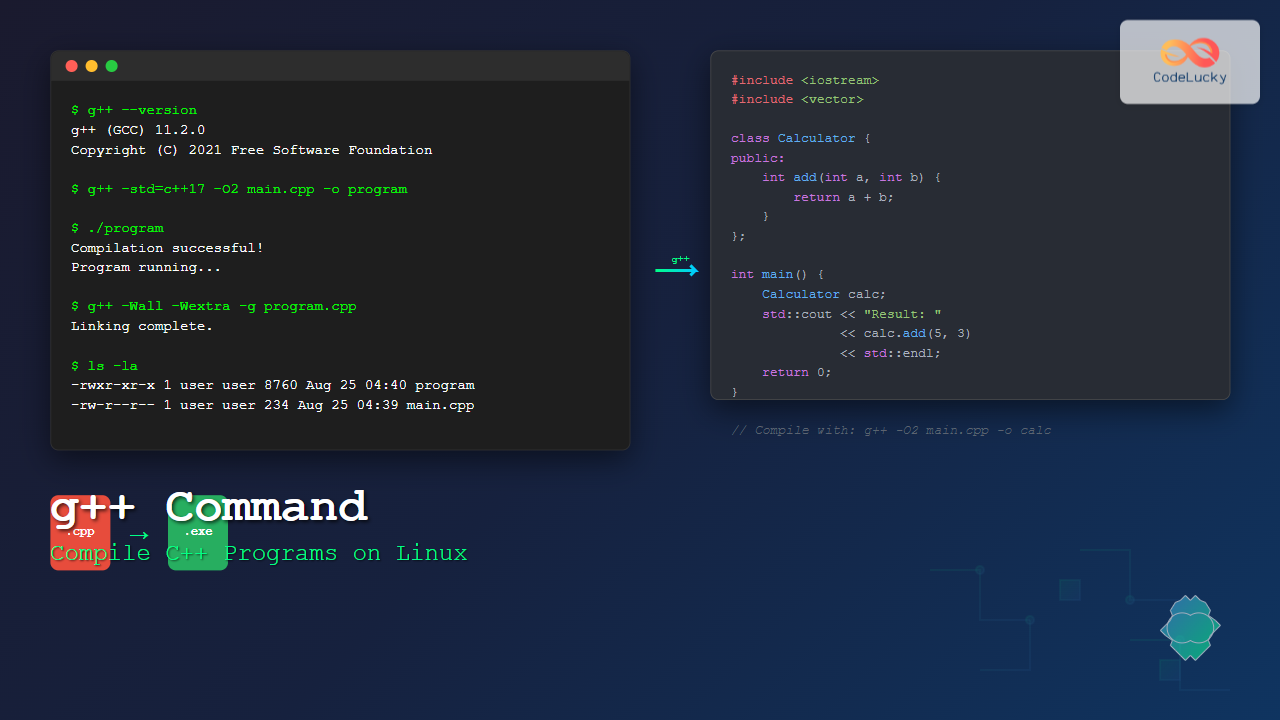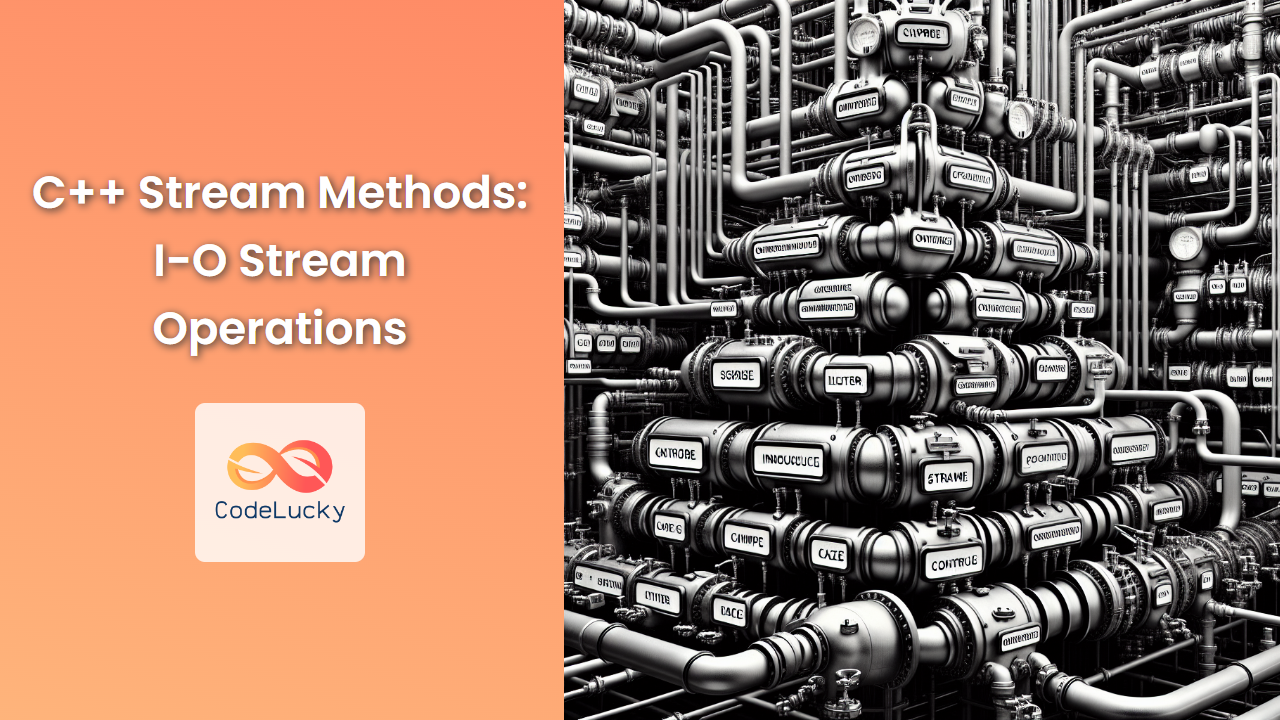In C++, function parameters are a crucial aspect of writing efficient and modular code. They allow us to pass data to functions, enabling us to create flexible and reusable code components. This article will dive deep into the various ways of passing parameters to functions in C++, exploring their nuances and best practices.
Understanding Function Parameters
Function parameters act as placeholders for the data that will be passed to the function when it's called. They define the interface between the function and the rest of the program, specifying what kind of data the function expects to receive.
Let's start with a simple example:
void greet(std::string name) {
std::cout << "Hello, " << name << "!" << std::endl;
}
int main() {
greet("Alice");
return 0;
}
In this example, name is a parameter of the greet function. When we call greet("Alice"), we're passing the argument "Alice" to the function.
Types of Parameter Passing
C++ offers several ways to pass parameters to functions. Each method has its own use cases and implications for performance and data manipulation. Let's explore each of these in detail.
1. Pass by Value
Pass by value is the simplest form of parameter passing. When you pass an argument by value, a copy of the argument is created and passed to the function.
void incrementByValue(int x) {
x++;
std::cout << "Inside function: " << x << std::endl;
}
int main() {
int num = 5;
incrementByValue(num);
std::cout << "In main: " << num << std::endl;
return 0;
}
Output:
Inside function: 6
In main: 5
🔍 Key Point: When passing by value, changes made to the parameter inside the function do not affect the original argument.
This method is suitable for small, simple data types. However, for large objects, it can be inefficient due to the overhead of copying.
2. Pass by Reference
Pass by reference allows you to pass the memory address of a variable to a function. This means the function can directly access and modify the original variable.
void incrementByReference(int& x) {
x++;
std::cout << "Inside function: " << x << std::endl;
}
int main() {
int num = 5;
incrementByReference(num);
std::cout << "In main: " << num << std::endl;
return 0;
}
Output:
Inside function: 6
In main: 6
🚀 Efficiency Boost: Pass by reference is more efficient for large objects as it avoids the overhead of copying.
3. Pass by Const Reference
When you want to pass a large object efficiently but prevent the function from modifying it, you can use const reference.
void printVector(const std::vector<int>& vec) {
for (const auto& element : vec) {
std::cout << element << " ";
}
std::cout << std::endl;
}
int main() {
std::vector<int> numbers = {1, 2, 3, 4, 5};
printVector(numbers);
return 0;
}
Output:
1 2 3 4 5
🛡️ Safety First: Const references provide the efficiency of pass by reference with the safety of immutability.
4. Pass by Pointer
Pointers allow you to pass the memory address of a variable to a function. This method is similar to pass by reference but with more explicit syntax.
void incrementByPointer(int* x) {
(*x)++;
std::cout << "Inside function: " << *x << std::endl;
}
int main() {
int num = 5;
incrementByPointer(&num);
std::cout << "In main: " << num << std::endl;
return 0;
}
Output:
Inside function: 6
In main: 6
⚠️ Caution: While powerful, pointers can lead to errors if not handled carefully. Always check for null pointers!
Advanced Parameter Passing Techniques
Now that we've covered the basics, let's explore some more advanced techniques for parameter passing in C++.
Default Parameters
C++ allows you to specify default values for function parameters. If an argument is not provided for a parameter with a default value, the default value is used.
void greet(std::string name = "Guest") {
std::cout << "Hello, " << name << "!" << std::endl;
}
int main() {
greet(); // Uses default parameter
greet("Alice"); // Overrides default parameter
return 0;
}
Output:
Hello, Guest!
Hello, Alice!
🎨 Flexibility: Default parameters add flexibility to your function interfaces.
Function Overloading
C++ supports function overloading, which allows you to define multiple functions with the same name but different parameter lists.
void print(int x) {
std::cout << "Integer: " << x << std::endl;
}
void print(double x) {
std::cout << "Double: " << x << std::endl;
}
void print(std::string x) {
std::cout << "String: " << x << std::endl;
}
int main() {
print(5);
print(3.14);
print("Hello");
return 0;
}
Output:
Integer: 5
Double: 3.14
String: Hello
🔀 Versatility: Function overloading allows you to create intuitive interfaces for different data types.
Variadic Functions
Variadic functions can accept a variable number of arguments. This is achieved using ellipsis (…) in C++.
#include <cstdarg>
double average(int count, ...) {
va_list args;
va_start(args, count);
double sum = 0;
for (int i = 0; i < count; ++i) {
sum += va_arg(args, double);
}
va_end(args);
return sum / count;
}
int main() {
std::cout << "Average: " << average(3, 1.0, 2.0, 3.0) << std::endl;
std::cout << "Average: " << average(5, 1.0, 2.0, 3.0, 4.0, 5.0) << std::endl;
return 0;
}
Output:
Average: 2
Average: 3
🔢 Flexibility: Variadic functions allow you to work with an arbitrary number of arguments.
Best Practices for Function Parameters
To write clean, efficient, and maintainable C++ code, consider these best practices when working with function parameters:
-
Use const references for large objects: This provides efficiency and prevents unintended modifications.
-
Prefer pass by value for small, simple types: For built-in types like int, double, etc., pass by value is often more efficient.
-
Use pointers when null is a valid input: If your function needs to handle the case where no value is provided, use a pointer.
-
Be consistent with parameter order: Place parameters in a logical order and maintain consistency across similar functions.
-
Limit the number of parameters: If a function requires many parameters, consider grouping them into a struct or class.
-
Use meaningful parameter names: Choose descriptive names that indicate the purpose of each parameter.
Real-world Example: A Temperature Conversion Function
Let's put our knowledge into practice with a more complex example. We'll create a temperature conversion function that demonstrates various parameter passing techniques.
#include <iostream>
#include <string>
#include <stdexcept>
enum class TempScale { Celsius, Fahrenheit, Kelvin };
double convertTemperature(double temp, TempScale from, TempScale to) {
if (from == to) return temp;
switch (from) {
case TempScale::Celsius:
temp = (to == TempScale::Fahrenheit) ? (temp * 9/5) + 32 : temp + 273.15;
break;
case TempScale::Fahrenheit:
temp = (to == TempScale::Celsius) ? (temp - 32) * 5/9 : (temp - 32) * 5/9 + 273.15;
break;
case TempScale::Kelvin:
temp = (to == TempScale::Celsius) ? temp - 273.15 : (temp - 273.15) * 9/5 + 32;
break;
}
return temp;
}
void printTemperature(double temp, TempScale scale) {
std::string scaleStr;
switch (scale) {
case TempScale::Celsius: scaleStr = "°C"; break;
case TempScale::Fahrenheit: scaleStr = "°F"; break;
case TempScale::Kelvin: scaleStr = "K"; break;
}
std::cout << temp << " " << scaleStr << std::endl;
}
int main() {
double temp = 25.0;
TempScale from = TempScale::Celsius;
TempScale to = TempScale::Fahrenheit;
std::cout << "Original temperature: ";
printTemperature(temp, from);
double convertedTemp = convertTemperature(temp, from, to);
std::cout << "Converted temperature: ";
printTemperature(convertedTemp, to);
return 0;
}
Output:
Original temperature: 25 °C
Converted temperature: 77 °F
In this example:
- We use an enum class for temperature scales, demonstrating how to pass enumerated types as parameters.
- The
convertTemperaturefunction takes three parameters: the temperature value (by value), and two TempScale parameters (also by value, as enums are typically small). - The
printTemperaturefunction demonstrates how to use a combination of value and enum parameters.
🌡️ Real-world Application: This example shows how proper parameter passing can create flexible and reusable functions for practical applications.
Conclusion
Understanding function parameters is crucial for writing effective C++ code. By mastering the various ways of passing data to functions, you can create more efficient, flexible, and maintainable programs. Remember to consider the size and nature of the data you're passing, the intended use within the function, and the overall design of your program when choosing how to pass parameters.
As you continue to develop your C++ skills, experiment with different parameter passing techniques in your projects. This hands-on experience will help you internalize these concepts and make better decisions in your code design.
Happy coding! 🚀👨💻👩💻















